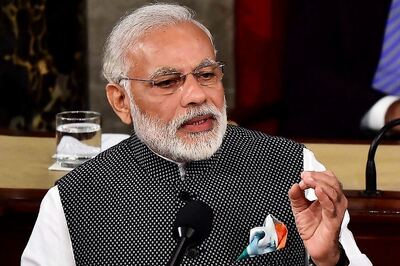
views
Premature ejaculation (PE) is a common sexual dysfunction that affects many men worldwide. It is characterized by the inability to control ejaculation, leading to the early release of semen during sexual activity. This condition can cause distress and frustration for both the individual and their partner. It is important that one understands the factors causing this condition, which can help in identifying the symptoms at an early stage and seeking timely treatment.
“Premature ejaculation is mostly linked to erectile dysfunction (ED) which is another sexual dysfunction that impact sexual performance and may lead to performance anxiety. While PE is commonly experienced by those aged 18-59, ED is more prevalent in individuals over 40. According to Pub Med, there’s a strong connection between the two conditions, with 30-60% of people with ED also experiencing PE. It’s important to note that ED and PE can coexist, and their association is bidirectional. This means that having one condition increases the likelihood of developing the other,” says Dr Mohan Keshavamurthy, Chairman, Renal Sciences, Fortis Hospital (India) Director of Urology, Uro-Oncology, Andrology, Transplant & Robotic Surgery at Fortis Hospital, Bangalore.
Premature ejaculation refers to the condition where a man ejaculates earlier than desired during sexual activity, often with minimal stimulation and before both partners are satisfied. “While premature ejaculation does not directly affect male fertility, it can have implications for a couple’s ability to conceive due to timing and sexual satisfaction,” opines Dr Kalpana Jain, Consultant, Birla Fertility & IVF.
Here’s an overview of the causes, symptoms, and treatment options for premature ejaculation:
CAUSES
Dr Jain explains the causes of Premature Ejaculation:
- Psychological factorsAnxiety, stress, performance anxiety, depression, relationship issues, or early sexual experiences can contribute to premature ejaculation.
- Biological factorsCertain medical conditions, such as hormonal imbalances, prostate problems, thyroid disorders, or abnormal reflex activity of the ejaculatory system, can play a role in premature ejaculation.
- Inherited traitsThere may be a genetic component to premature ejaculation, with some men being more predisposed to the condition.
Symptoms
Premature ejaculation is most recognized by the inability to delay ejaculation during sexual activity. “Both partners may be unsatisfied if a man with PE has a recurring habit of ejaculating within a minute or two of penetration. ED, on the other hand, is characterized by trouble obtaining or keeping an erection strong enough for sexual activity. Significant distress, problems with one’s self-esteem, and difficulty in relationships can all result from these symptoms,” adds Dr Keshavamurthy.
Effects on Male Infertility
While premature ejaculation itself does not directly impact male fertility, it can indirectly affect fertility if it hinders the couple’s ability to time intercourse optimally. “In some cases, if ejaculation occurs before penetration or very shortly afterward, it may make conception more challenging. Additionally, the emotional and psychological distress associated with premature ejaculation can contribute to sexual dysfunction and reduce overall sexual satisfaction, which may affect a couple’s willingness or ability to engage in regular sexual activity for conception,” states Dr Jain.
Treatment Options for Premature Ejaculation
Treatment for Premature Ejaculation typically involves a combination of behavioural techniques, counselling, and medical interventions.
- Behavioral techniques“Ejaculatory control and ED can be improved with behavioural strategies such as the stop-start method and the squeeze technique. Counselling could be useful for resolving psychological problems that contribute to PE and ED enhancing overall sexual satisfaction,” says Dr Keshavamurthy.
- Psychological counsellingAddressing any underlying psychological issues, such as anxiety or performance anxiety, through therapy or counselling can be beneficial.
- MedicationsIn some cases, doctors may prescribe certain medications, such as selective serotonin reuptake inhibitors (SSRIs), which can have an effect on delaying ejaculation.
- Topical anaesthetics“Creams or sprays containing local anaesthetics may be applied to the penis to reduce sensitivity and delay ejaculation,” believes Dr Jain.
- Combination therapiesA combination of behavioral techniques, counselling, and medication may be recommended for severe cases or when other methods have not been effective.
- Medical interventionsWhen conservative treatments fail to produce satisfactory results, medical interventions may be considered. “The penile implant, a surgical procedure that includes inserting an inflated or pliable device into the penis, is one such possibility. This implant allows the user to acquire and sustain an erection, giving them more control over their erection and ejaculation. While penile implant surgery is a more intrusive procedure, it can be quite beneficial for men who have not responded to previous treatments,” opines Dr Keshavamurthy.
It is necessary to consult a qualified healthcare professional, such as a urologist or sexual medicine specialist, to determine the most appropriate treatment for each individual. They can evaluate the specific needs and goals of the patient and guide them towards the most suitable treatment options, including behavioral techniques, medications, counseling, or surgical interventions.



















Comments
0 comment